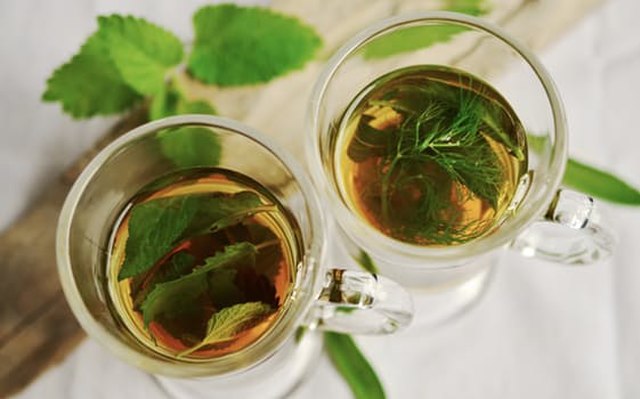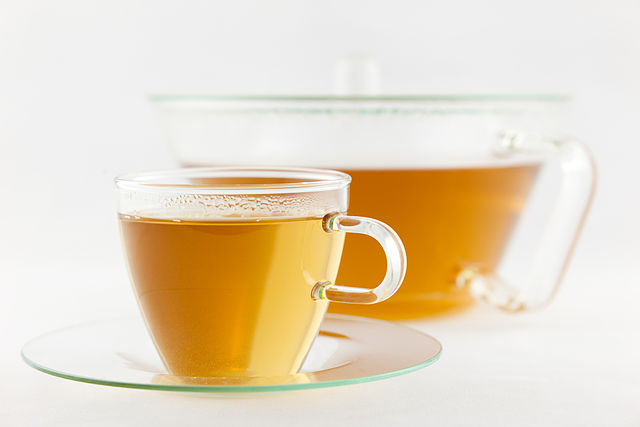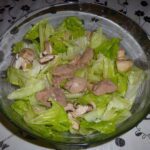Herbal tea has become a beloved beverage for many, offering a delightful taste and potential health benefits. One common question that arises is, “Does herbal tea have caffeine?” In this comprehensive and informative blog post, we will delve into the world of herbal tea and caffeine content. We will explore the top herbal teas available today, examine their caffeine content, address misconceptions, and highlight the additional benefits of herbal tea consumption.
Get ready to expand your knowledge and discover the wonderful world of herbal teas!
Understanding Herbal Tea and Caffeine
Herbal tea, also known as tisanes, is a type of beverage made from various plants, flowers, or herbs. Unlike traditional teas made from the Camellia sinensis plant, herbal teas are typically caffeine-free. This makes them an appealing choice for individuals who prefer to avoid caffeine or are looking for a soothing and relaxing beverage without much hassle. However, it’s important to note that there are some exceptions to this general rule.
Misconceptions often arise due to the association of tea with black tea, which does contain caffeine. It’s crucial to understand that herbal teas, derived from different plants, have their own unique characteristics and caffeine content. By exploring the world of herbal teas, we can gain a better understanding of their caffeine-free nature and the few exceptions that contain caffeine.

Examining the Top 10 Herbal Teas and Their Caffeine Content
Let’s take a closer look at some of the most popular herbal teas and their respective caffeine content to provide a comprehensive understanding of the choices available.
Chamomile Tea
Chamomile tea is renowned for its calming properties and is widely consumed for relaxation and promoting sleep. The great news is that chamomile tea is naturally caffeine-free, allowing you to enjoy its soothing effects without any stimulation.
Mint Tea
Mint tea offers a refreshing and invigorating flavor profile. It is often enjoyed for its ability to aid digestion and freshen breath. The good news is that mint tea is devoid of caffeine, making it an ideal choice for those seeking a caffeine-free and refreshing beverage,
Lavender Tea
Lavender tea, known for its delicate floral aroma, is another caffeine-free option. Beyond its caffeine-free status, lavender tea may help alleviate stress and promote relaxation. Sipping a warm cup of lavender tea can provide a calming and soothing experience, making it a popular choice among tea enthusiasts.
Cinnamon Tea
Cinnamon tea, with its warm and spicy flavor, is a favorite among tea lovers. This delightful herbal tea is also free from caffeine, making it a comforting choice for those who want to enjoy a delicious cup of tea without the effects of stimulants. Cinnamon tea may also possess anti-inflammatory and antioxidant properties.
Yerba Mate Tea
Yerba mate tea, unlike most herbal teas, contains caffeine. It is derived from the leaves of the yerba mate plant and is popular in South America. Yerba mate offers potential health benefits and provides a natural energy boost. However, individuals seeking a caffeine-free option should be aware of its caffeine content and consider other herbal teas on this list.
Lemon Tea
Lemon tea, often associated with black tea, is usually caffeine-free. The refreshing citrus flavor of lemon tea makes it a delightful choice for tea enthusiasts. Additionally, lemon tea is rich in vitamin C, offering a boost to your immune system. So, feel free to enjoy a cup of lemon tea without worrying about the caffeine content.
Guarana Tea
Guarana tea is an herbal beverage that contains caffeine. It is derived from the seeds of the guarana plant, which naturally contain this stimulating compound. Guarana tea is often enjoyed for its potential energizing effects. However, for those seeking a caffeine-free alternative, it’s advisable to exercise caution and consider other herbal teas on this list.
Green Tea (included for comparison)
Although green tea is not an herbal tea, we include it for comparison purposes. Green tea is derived from the Camellia sinensis plant and does contain caffeine. It offers a range of health benefits, including boosting metabolism and promoting heart health. However, if you’re specifically looking for herbal teas without caffeine, the options listed above are the best choices.
Oolong Tea (included for comparison)
Oolong tea falls in between green and black tea in terms of caffeine content. It offers a unique flavor profile and potential health benefits. While oolong tea does contain caffeine, the levels may vary depending on the specific type and brewing method. If you’re seeking a caffeine-free option, it’s best to explore the herbal teas mentioned earlier.
White Tea (included for comparison)
White tea, known for its delicate flavor and subtle notes, contains minimal amounts of caffeine. Although it is not entirely caffeine-free, the levels are generally low. White tea is treasured for its potential antioxidant properties. If you prefer herbal teas without caffeine, the previously mentioned options are excellent choices to explore.

Additional Benefits of Herbal Tea
Beyond the caffeine content (or lack thereof), herbal teas offer a wide range of additional benefits for overall well-being.
Herbal teas are rich in antioxidants, which play a crucial role in combating free radicals in the body. These powerful antioxidants help protect cells from damage, reducing the risk of chronic diseases and promoting longevity. Moreover, herbal teas are often packed with vitamins, minerals, and other bioactive compounds that support various bodily functions.
One notable advantage of herbal teas is their potential to support the immune system. Many herbal teas, such as echinacea and elderberry, contain immune-boosting properties. These teas are often consumed during cold and flu seasons to fortify the body’s defenses against common illnesses.
Digestive health is another area where herbal teas can shine. Peppermint tea and ginger tea, for instance, have long been cherished for their ability to soothe digestive discomforts, alleviate bloating, and promote healthy digestion.
Detoxification is a popular topic in the wellness world, and certain herbal teas are believed to aid in the body’s natural cleansing processes. Dandelion tea and nettle tea are renowned for their potential detoxifying effects, supporting liver function and promoting the elimination of toxins from the body.
Relaxation and stress relief are additional benefits associated with herbal teas. Chamomile tea, known for its calming properties, has been used for centuries to relax the mind and promote better sleep. Other herbal teas like passionflower and valerian root tea are believed to have sedative properties, making them ideal choices for relaxation and stress management.
While herbal teas offer numerous benefits, it’s important to note that they are not a substitute for medical advice or treatment. If you have specific health concerns, it’s always best to consult with a healthcare professional to ensure the safe and appropriate usage of herbal teas.
Tips for Choosing and Brewing Herbal Tea
Selecting high-quality herbal teas is essential to enjoy the full flavors and potential benefits. Consider the following tips when choosing herbal teas:
- Opt for organic options: Look for herbal teas made from organically grown plants to ensure they are free from pesticides and other harmful chemicals.
- Explore reputable brands: Choose herbal teas from well-established and trusted brands known for their commitment to quality.
- Read the ingredients: Check the ingredients list to ensure that the herbal tea you choose does not contain any additives or artificial flavors.
- Consider your preferences: Herbal teas come in a variety of flavors and combinations. Experiment with different blends to find the ones that suit your taste and preferences.
- Proper storage: To maintain the freshness and potency of your herbal teas, store them in airtight containers in a cool, dry place away from direct sunlight and strong odors.
When it comes to brewing herbal tea, here are some general guidelines:
- Heat the water: Boil fresh, filtered water and let it cool slightly before pouring it over your herbal tea leaves or tea bag.
- Measure the tea: Use approximately 1 teaspoon of dried herbs or 1 tea bag per 8 ounces of water. Adjust the amount according to your desired strength.
- Steeping time: Herbal teas generally require a longer steeping time compared to traditional teas. Start with 5-7 minutes and adjust based on your taste preferences.
- Customize to taste: Feel free to add natural sweeteners like honey or a squeeze of lemon to enhance the flavor of your herbal tea.
Remember, each herbal tea may have specific brewing instructions, so it’s always a good idea to refer to the packaging or consult reliable sources for the best brewing practices.
Conclusion
In conclusion, herbal teas are a wonderful caffeine-free beverage option, offering a wide array of flavors and potential health benefits. While most herbal teas are free from caffeine, it’s important to be aware of exceptions like yerba mate and guarana tea. By exploring the world of herbal teas, you can discover the perfect brew to suit your preferences and support your well-being. Enjoy your herbal tea journey and savor the delightful flavors and benefits it brings!








